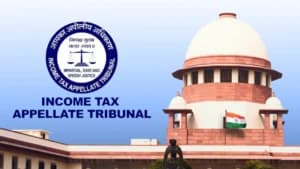The Supreme Court on Monday dismissed a petition filed by a UK-based businessman, Alan Mervyn Arthur Stephenson, seeking appointment of an arbitrator in a partnership dispute with his Indian associate, J. Xavier Jayarajan. The Court held that the claim was “clearly barred by limitation” and found no reason to entertain the arbitration request under Section 11(5) of the Arbitration and Conciliation Act, 1996.
Background
Stephenson, a resident of the United Kingdom, had entered into a real estate partnership with Jayarajan back in 2014 after an earlier venture between Jayarajan and Stephenson’s sister was dissolved in 2008. The 2014 partnership aimed at constructing service apartments, and according to Stephenson, he invested a hefty ₹2.31 crore in the project.
As per the agreement, 75% of profits were to be transferred to him. However, the project never took off, and disputes surfaced over financial transactions related to the purchase of land on May 4, 2016.
In December 2020, Stephenson sent a legal notice seeking arbitration over the alleged default, but Jayarajan argued that the notice was filed too late. The respondent claimed that any claim for recovery was already time-barred by then, given the long gap since the 2016 transaction.
Court’s Observations
The bench of Chief Justice B.R. Gavai and Justice K. Vinod Chandran took note of several delays on the petitioner’s part. “As on the date of notice, the claim for recovery of amounts was barred by limitation,” Justice Chandran observed while reading out the order.
The Court noted that Stephenson had already filed a police complaint in 2017 alleging fraud and cheating, which was later closed. He then approached a Bengaluru magistrate under Section 200 of the Criminal Procedure Code, but that complaint was rejected in June 2017. Even after receiving a payment of ₹1 lakh in August 2017, the Court pointed out that the notice of arbitration issued in December 2020 was “beyond the permissible time frame.”
“The delay cannot be brushed aside,” the bench remarked, emphasizing that limitation law serves as a safeguard against stale claims. The justices also referred to the petitioner’s earlier failed attempts before the Karnataka High Court, which had dismissed his plea in January 2025, granting liberty to pursue other remedies.
Decision
Concluding the matter, the Supreme Court ruled that both the arbitration notice and the petition itself were “filed well beyond the limitation period.” Consequently, the Arbitration Petition (No. 21 of 2025) seeking appointment of an arbitrator was dismissed.
“The Arbitration Petition seeking appointment of arbitrator stands dismissed,” the order stated plainly, bringing the long-pending partnership dispute to an end.
Case Title: Alan Mervyn Arthur Stephenson v. J. Xavier Jayarajan
Case Type: Arbitration Petition No. 21 of 2025
Date of Judgment: October 14, 2025















